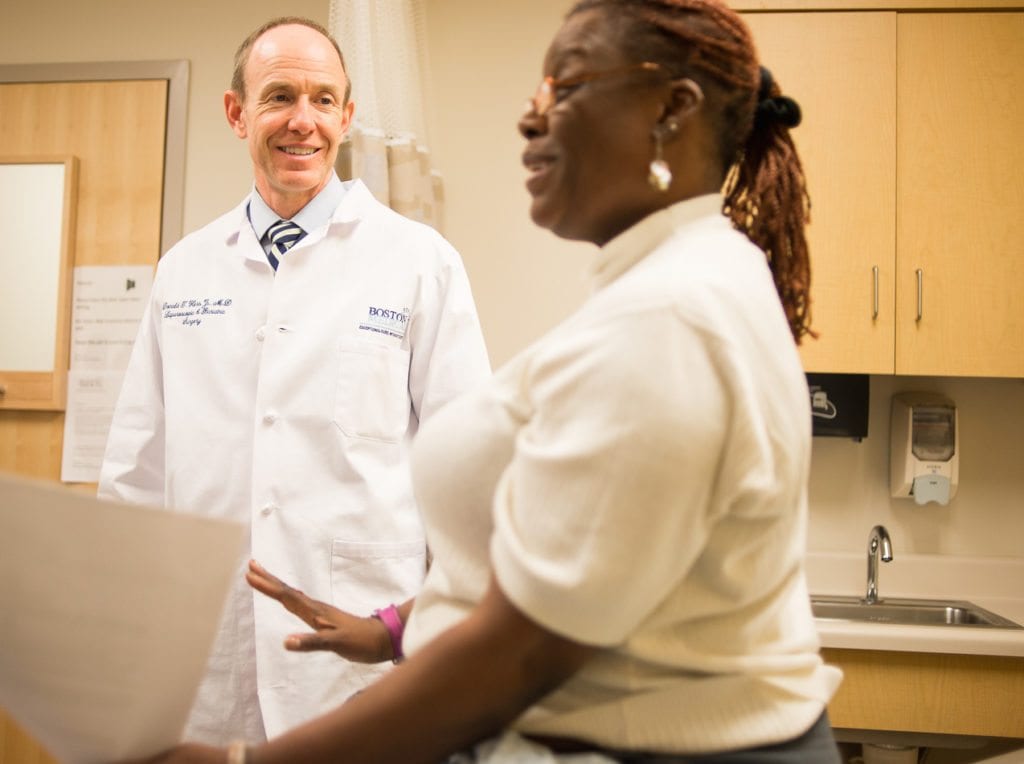
If you or someone you know struggles with obesity, you understand the struggles of endless weight loss programs that have shown no results, exhaustion from small tasks and the increase of various health risks due to weight.
The Weight Loss Surgery Program at Boston Medical Center offers several procedures for managing weight and weight related health problems. Typically, patients with a BMI greater than 40 can qualify. All surgeries are performed laparoscopically, meaning only through small incisions, which reduces recovery time and results in less post-operative scarring. Each surgical options reduces the size of the stomach in some way, allowing patients to feel full more quickly, and therefore, lose weight.
Perhaps one of the most common surgical options is the Sleeve Gastrectomy, or Gastric Sleeve. Here, the stomach is made smaller by stapling and dividing the majority of the stomach and removing it from the body. The remaining part of the stomach is very narrow and only holds about 3 oz. of food. With this option, food is still able to exit the stomach the same way it would normally. But, similar to Gastric Bypass, vitamin and mineral supplements are still necessary. After surgery, patients will typically be required to take vitamin and mineral supplements.
Another surgical option offered at BMC Gastric Bypass. The purpose of this procedure is to make the stomach smaller by stapling and dividing it into two pouches. The larger part of the stomach is bypassed, meaning that the food is going around it, rather than passing through it. A Y-shaped section of the small intestine is attached to the smaller pouch, creating a bypass for food, skipping the digestive system. Because the main stomach and the first part of the small intestine are bypassed, vitamin and mineral supplements are still necessary.
A third but less common procedure is the Intra-Gastric Balloon. Suited for patients with a BMI between 30-40 who may not otherwise qualify for weight loss surgery, this outpatient procedure is recommended for those who have not been able to lose weight by improving diet and exercise habits. Here, a saline filled silicone balloon is placed endoscopically through the mouth with no surgical incisions. Similar to other weight loss procedures, the idea is that the patient will feel full quickly, due to the size of the balloon in the stomach. Typically after about six months, the balloon is removed.
The team at Boston Medical Center also has extensive experience in revisional weight loss surgery, which can include the removal of existing gastric banding devices (i.e. Lap Band) or the conversion to another type of weight loss surgery. To take the first step in your weight loss journey today, sign up for a new patient information session, or view the presentation online. Your dedicated weight loss surgery team is committed to helping you choose the right path in order to stay happy and healthy.






